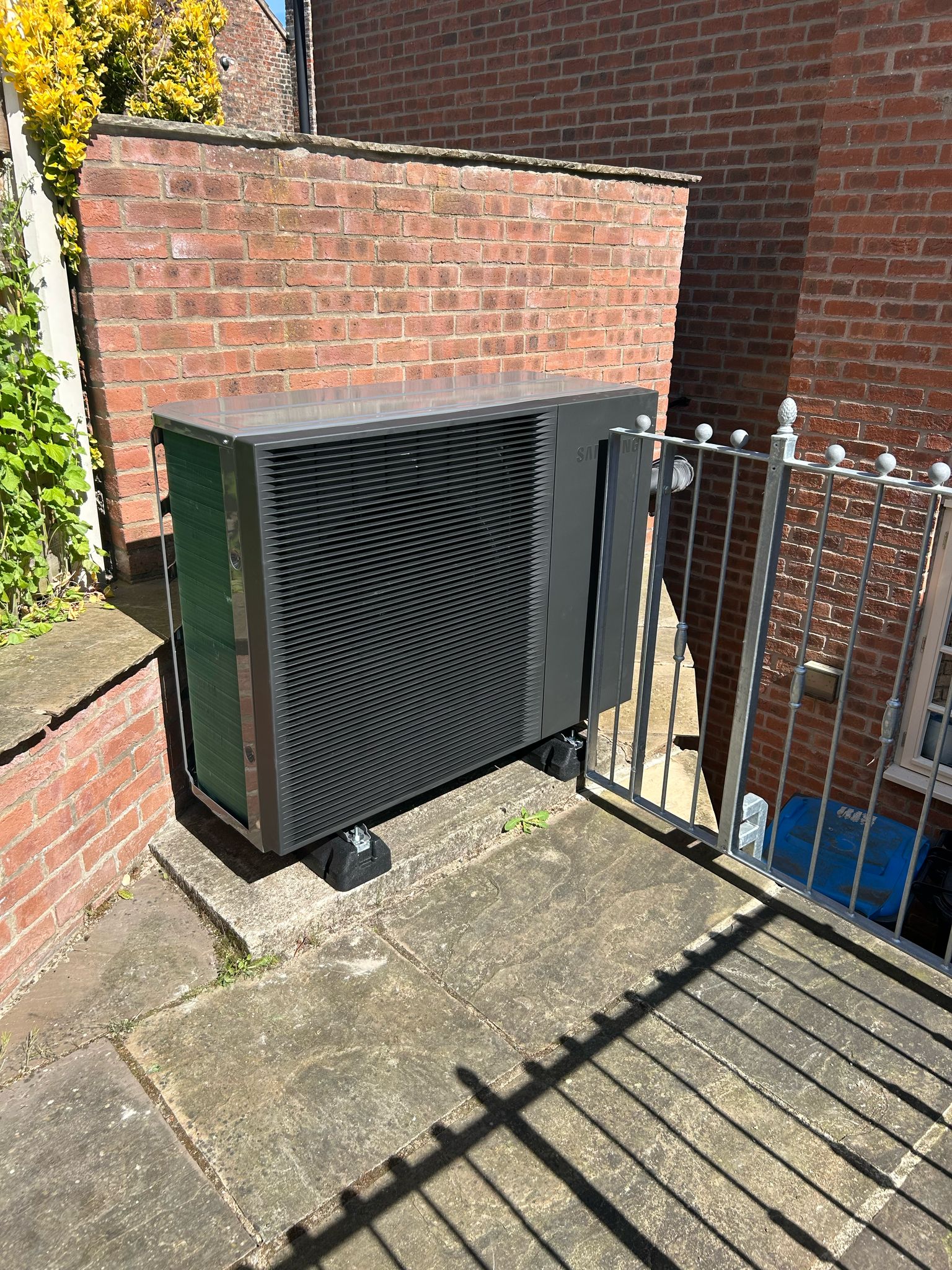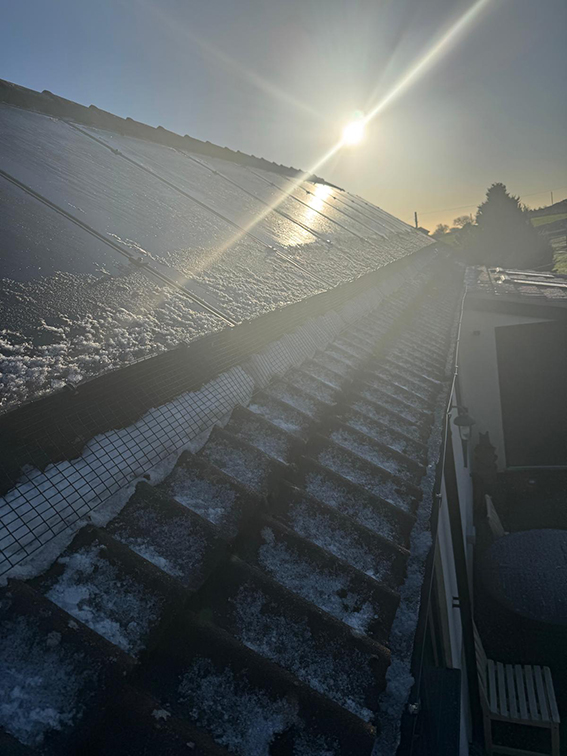
Solar Accreditation: What should I look for in an installer?
Solar Industry Accreditation –What Does It Mean?
Regulation is important in any industry, but even more so in an industry as new and baffling as renewable energy.
This blog is our guide to accreditation within the solar industry.
These institutions have been created to put the customer at the forefront of any sales, installations or purchases.
So, what do you need to look out for to ensure you have the best protection.
MCS | Microgeneration Certification Scheme
MCS has been the main regulator of the UK solar industry, monitoring all low-carbon products and installations, since 2007.
MCS has become such a universal standard that every energy supplier, apart from Octopus, require your installation to be MCS registered before they will consider taking your excess energy.
Octopus have stated you don’t need MCS to export to them, but you do need an MCS equivalent if they are to take your excess energy.
MCS covers everything that generates electricity or heat from a renewable source.
Including wind turbines, biomass boilers, heat pumps and all that money saving solar energy equipment.
MCS ensure standards in quality, professionalism and customer are held up by accrediting installers and fitters too.
If you want to know if your equipment and installer have all the necessary standards just visit the MCS website here – or type ‘MCS’ and ‘Installer’ into Google.
MCS also insist that their certified installers are registered with a Trading Standards Institute (TSI) Consumer Code run by the Chartered Trading Standards Institute … all backed by the UK Government (regardless of the colour of their tie).
An installer being a member of a Consumer Code means you have an extra layer of protection if something goes wrong with your installation.
Plus, if things go truly pear shaped but you are having no look with any other industry bodies, you can escalate the complaint to MCS if you have had no luck with other industry bodies.
MCS is YOUR protection so always ensure you installer is registered with them.
EPVS | Energy Performance Validation Scheme
It isn’t a legal requirement to be a member of EPVS, but we would recommend that any company you use is.
EPVS is there to ensure any claims made by a company, whether about saving or payback time, is correct.
Solar PV to Heat Pumps – EPVS want you to feel safe and informed when you are buying any renewable tech.
Most quotes from a solar installation company will contain claims on how much you can save on your electricity bill, as well as details on earning money from export, EPVS will check that these are not being inflated for sales purposes.
You’ll also be told how much your installer thinks you’ll save over the lifetime of the system – these should include any maintenance and replacements you may need to pay for. EPVS will ensure the numbers all add up.
It’s the installer who deals with EPVS though, you wouldn’t need to contact them unless you were having problems.
An installer that’s registered with EPVS will send their quotes and savings predictions to EPVS before commencing any install.
EPVS have a monthly monitoring program for each member to ensure that everything is above board and ship shape.
It’s worth noting that EPVS cannot guarantee they get everything right – but they will weed out outrageous claims or outright lies.
HIES | The Home Insulation & Energy Systems Quality Assured Contractors Scheme
HIES describes itself as a 'Chartered Trading Standards Institute (CTSI) approved Consumer Code’.
So, it is there to protect you, the consumer, by overseeing the installation of home energy products.
HIES try to keep the customer fully protected before, during and after their installations, by regulating members and insurance backing any installations.
HIES is one of the most stringent bodies out there, making it very difficult to get accredited with. Members are vetted regularly to ensure they pass accreditation processes for the products and services they offer.
HIES protects you in the following areas:
Deposit protection
HIES keep you covered for up to 25% of the contract value, to a maximum limit of £5,000, for 120 days from the date you signed the contract.
Insurance-backed guarantee (IBG)
This is the promise that, should anything happens to your installer, they will still protect you.
The installer can choose an IBG from 2 to 1 years and they will inform HIES when they completed your installation to start your IBG.
Alternative dispute resolution
This is a great service should relations between you and your installer break down.
HIES will step in and mediate any conflict you may have, and they also offer a ‘Consumer Advice Line’ should you have any questions after you sign a contract with a HIES member.
If HIES find themselves unable to find any resolution between you and your installer they will give you access to an Ombudsman.
NAPIT – National Association of Professional Inspectors and Testers
NAPIT is more about the building, materials and installation of your solar energy system.
There are here are 20,000+ NAPIT registered installers working in UK right now – they cover the electrical, building fabric, heating, plumbing, ventilation, and micro-generation sectors.
NAPIT isn’t just about home improvements though, they cover domestic, commercial and industrial markets.
Businesses registered with NAPIT show a high level of competence and must ensure they adhere to NAPIT regulations at all times.
This includes:
- Being able to complete work safely and to legally required standards
- Regularly getting assessed to provide assurance of their ongoing competence
- Proof that the business is capable of working to the very latest health and safety regulations
- Making sure they provide customers with the necessary certificates demonstrating regulatory compliance for the work they do. You will need this certification for tenants, insurance providers and solicitors. You will definitely need them if and may be needed if you are looking to let or sell your property.
- As for solar, or any other micro-generation installations, NAPIT state: :
- ‘Following any work done under the MCS, you should be left with a handover pack with a number of specific contents that can be checked at this external link.
- The installer is also required to register your installation on the Micro-generation Installation Database within 10 days of commissioning the system and should supply you with the MCS Certificate generated from the database.
- In England and Wales, whether or not the work is completed under MCS, small scale renewable energy is notifiable under the Building Regulations, and you should receive a Building Regulations Compliance Certificate (BRCC). This will be issued by NAPIT and should arrive within 30 days of your work being completed.‘
- NAPIT will ‘seek to acknowledge all complaints within 5 working days.’
Trustmark
This is pretty import as Trustmark is the ONLY Government-Endorsed Quality Scheme or home improvements - from extension and new bathrooms to new outbuildings and your solar energy systems.
Trustmark are partnered with a network of accreditation bodies and trade associations, called Scheme Providers.
These bodies are the the ones that oversee the Trustmark Registered Businesses to ensure meet the required standards of technical competence, trading practices and customer service.
To qualify Trustmark Partners must:
- There are stacks of other regulations NAPIT cover, but this blog would be too long to read if we added them.
- Use effective, open and fair processes for assessing and approving Scheme Providers
- Comply with Trustmark’s Customer Charter, and work to the operational requirements set out in the Code of Conduct and the Codes of Practice relevant to the works completed
- Provide accurate performance claims for any home heating, insulation, energy saving or energy generation installations, and then supply products and services that perform as promised
- Carry out a proper testing and hand-over process so you know about how thing work and how they must be maintained
- Follow processes correctly, turn up for appointments and work the hours they say they will Act in a responsible and professional manner
- Be responsive, approachable and treat you fairly and with respect
- Communicate clearly and in good time so you always know what is happening, for example if they are running late for an appointment or if anything changes
- Be mindful of vulnerable customers
- Respect the sanctity of your home and agree any access requirements with you
- Keep their work area safe, with minimum of disruption, ensuring that it is tidy at the close of the day
- Protect your personal information in compliance with data protection regulations
- Try to understand your circumstances so, where you receive advice, that advice is suitable and takes account of your needs
- Supply you with goods and services in line with your usual consumer rights
There are sacks of other regulations Trustmark cover, but this blog would be too long to read if we added them all.
Conclusion
Make sure any installer you use for your solar energy installation has all the necessary accreditation – it’s you they protect.


